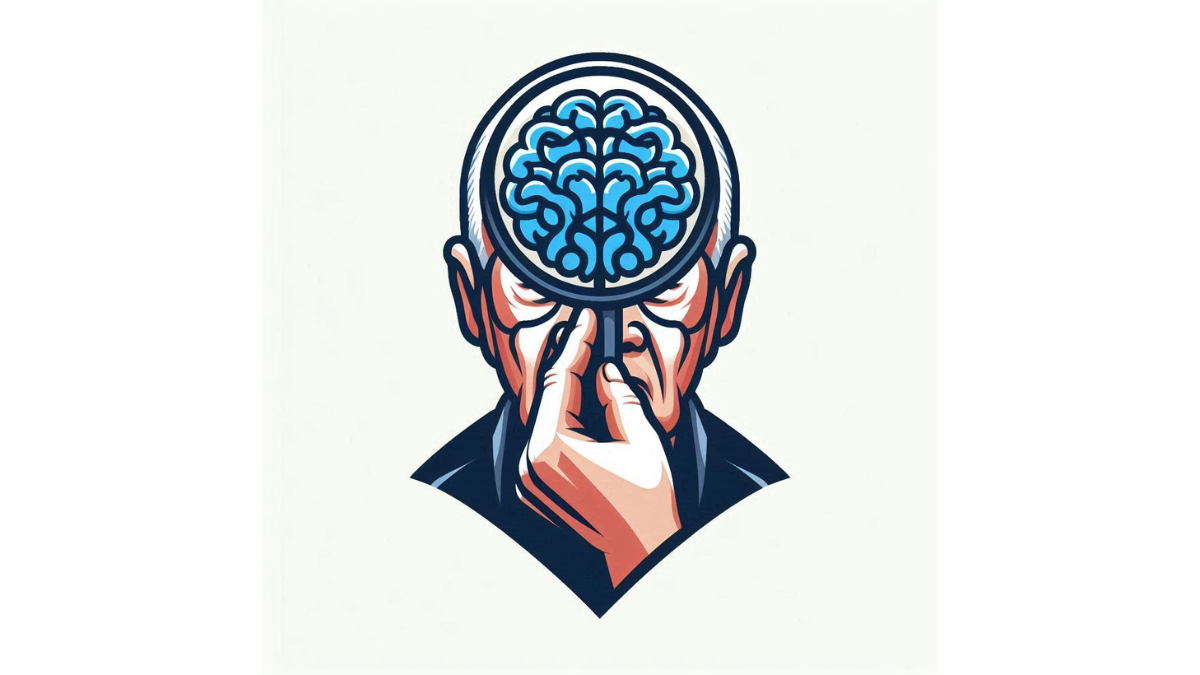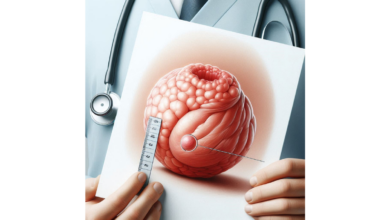Simple Steps for Alzheimer’s Disease Prevention

Simple Steps for Alzheimer’s Disease Prevention – Alzheimer’s Disease is a complex and often misunderstood condition that profoundly influences not just the individuals diagnosed, but also their families and communities. As you navigate through this topic, you might find yourself relating to stories of friends or relatives who have faced the challenges posed by Alzheimer’s. It’s a disease that does not discriminate, affecting people in various ways, and at different ages. At its core, Alzheimer’s is characterized by a gradual decline in cognitive function, impacting memory, thinking, and behavior. Here are a few key points to understand:
- It’s Progressive: Alzheimer’s doesn’t happen overnight. Instead, it progresses slowly, often starting with mild memory loss and escalating to severe cognitive decline.
- Symptoms Vary: Not everyone experiences the same symptoms. Some may struggle with remembering recent events, while others may face difficulty navigating familiar places.
- Impact on Daily Life: The disease significantly impacts daily activities. For instance, a simple conversation can become challenging for those affected.
From personal experiences, one might recall a loved one slowly forgetting family events or vital details—a heartbreaking journey that can leave family members feeling helpless. Understanding Alzheimer’s is not just about recognizing symptoms; it’s about building awareness and empathy for those coping with this disease. This foundation will guide us towards exploring how various lifestyle factors can contribute to brain health and potentially mitigate the risks associated with Alzheimer’s.
Importance of Lifestyle Factors
Diet and Nutrition
As we delve deeper into the realm of Alzheimer’s awareness and prevention, it’s crucial to recognize the significant role that diet and nutrition play in brain health. You might recall instances where people around you adopted healthier eating habits, claiming they felt sharper and more energetic. Research suggests that what you eat can substantially influence your cognitive function and overall well-being.
- Mediterranean Diet: Renowned for its benefits, this diet emphasizes fruits, vegetables, whole grains, olive oil, and fish. Studies indicate a connection between adherence to this diet and a reduced risk of Alzheimer’s.
- Antioxidant-rich Foods: Berries, nuts, and leafy greens are packed with antioxidants, which help combat oxidative stress and inflammation, two factors linked to cognitive decline.
Remember a time when you indulged in a hearty meal versus a balanced, nutrient-rich one? The latter likely left you feeling more alert and satisfied.
Exercise and Physical Activity
Physical activity is another cornerstone of maintaining brain health. Regular exercise not only benefits your body but also enhances cognitive function.
- Aerobic Exercises: Activities like walking, swimming, or cycling promote blood flow to the brain, encouraging the growth of new neurons. Imagine pairing your daily walk with a friend; it’s a social activity wrapped in physical benefits!
- Strength Training: Lifting weights or doing resistance exercises can improve mood and cognitive function, boosting self-esteem and making daily challenges more manageable.
A great personal example is witnessing a relative engage in group yoga sessions; their improved balance and mental clarity were evident over time. By integrating a balanced diet and exercise into your routine, you’re not just nurturing your body, but also fortifying your mind against potential cognitive decline, including Alzheimer’s.
Cognitive Stimulation
Mental Exercises
Continuing our exploration of lifestyle factors that can impact Alzheimer’s risk, we arrive at the vital concept of cognitive stimulation. Just as you would tune an instrument to maintain its sound quality, your brain requires regular exercise to keep sharp and engaged. Mental exercises are simple yet powerful tools to enhance cognitive functioning. Consider activities that challenge your brain in new and exciting ways. Engaging in puzzles, reading, or learning a new language can all be beneficial. Here are some effective mental exercises you might enjoy:
- Crossword Puzzles and Sudoku: These classic puzzles can help improve problem-solving skills and memory. Perhaps you’ve spent cozy weekends solving them over a cup of coffee—those moments not only entertain but sharpen your mind!
- Board Games: Games like chess or strategy-based card games encourage strategic thinking and social interaction. Maybe recalling family game nights brings a smile—it’s both fun and mentally stimulating.
- Memory Games: Simple card-matching games can boost memory skills, and they can be a delightful way to spend time with loved ones.
Implementing these mental exercises can have a lasting impact. Just like physical fitness, exercising your brain regularly helps build new neural connections that may protect against Alzheimer’s. Think of it as a workout for your mind—keeping it fit and agile for years to come!
Social Engagement
Maintaining cognitive health extends beyond mental exercises; social engagement plays a crucial role in reducing the risk of Alzheimer’s Disease. Just as tending to relationships nurtures your emotional well-being, staying socially active can keep your brain vibrant and engaged. Consider the joy of connecting with others—whether it’s a chat over coffee or a shared hobby. These social interactions not only enrich your life but also actively stimulate your brain. Here are some effective ways to enhance your social engagement:
- Join Community Groups: Whether it’s a book club, gardening group, or volunteer organization, these gatherings provide opportunities for conversation and shared experiences. You might have enjoyed attending a local class, where the mix of learning and camaraderie left you feeling revitalized.
- Regular Family Gatherings: Sharing meals and stories with loved ones strengthens bonds and exercises your memory as you recollect fond moments. Imagine laughing over family anecdotes; each chuckle not only lifts your spirits but keeps your mind engaged.
- Use Technology: Social media platforms or video calls can help maintain connections, especially with long-distance friends or family. Remember that heartwarming feeling when a family member reached out through a video chat—it’s a simple yet impactful way to bridge distances.
Staying socially engaged not only helps to ward off feelings of loneliness but also supports cognitive function. Each interaction serves as a brain workout, fostering resilience against cognitive decline and enriching your life with meaningful connections.
Quality Sleep
As we continue to explore the critical lifestyle factors beneficial for cognitive health, let’s turn our attention to a fundamental yet often overlooked aspect: quality sleep. Just as a computer requires occasional updates for optimal performance, our brains need restorative sleep to function effectively. You might remember those days when sleep eluded you; the grogginess and foggy thinking that followed can be frustrating. Studies have shown that poor sleep is linked to an increased risk of cognitive decline, including Alzheimer’s. Here’s how prioritizing quality sleep can bolster your brain health:
- Memory Consolidation: During sleep, your brain processes and consolidates memories. Think of it as your mind’s way of organizing paperwork for easy access later. Creating a calming bedtime routine can help you achieve this.
- Cleansing the Brain: Sleep helps clear out toxins from the brain, including beta-amyloid—a substance associated with Alzheimer’s. A good night’s sleep serves as a natural detox.
- Improved Mood and Cognitive Function: Adequate sleep enhances your mood and cognitive abilities, making everyday tasks feel manageable. Recall the times a refreshing night’s rest transformed your productivity and outlook on the day ahead.
To maximize your nighttime rest, consider establishing a consistent sleep schedule, creating a peaceful sleeping environment, and minimizing screen time before bed. By investing in quality sleep, you’re not only recharging your body but actively supporting your brain’s resilience against the challenges of Alzheimer’s Disease.
Stress Management
Building on our discussion about quality sleep, let’s dive into another crucial factor that impacts cognitive health: stress management. Just as chronic sleep deprivation can cloud your thinking, prolonged stress can wreak havoc on your brain, potentially increasing the risk of Alzheimer’s Disease. Think back to moments when stress unexpectedly crept into your life—work deadlines, family responsibilities, or financial concerns. Remember how those situations made it harder to concentrate and enjoy daily activities? Managing stress isn’t just about relaxing; it’s about equipping your brain to navigate challenges effectively. Here are some tips to help you maintain balance:
- Mindfulness and Meditation: Taking just a few minutes each day to practice mindfulness can reduce stress and improve mental clarity. You might find a calming practice suddenly made mundane tasks feel lighter and more manageable.
- Regular Physical Activity: Exercise is a proven stress reliever. Whether it’s a brisk walk, yoga, or dancing in your living room, find a movement you love. That rush of endorphins can significantly enhance your mood.
- Connection and Communication: Sharing your stressors with friends or family can lessen their weight. Perhaps you recall a time when just talking through your worries helped you see them in a new light.
By effectively managing stress, you not only improve your overall well-being but also fortify your brain against potential cognitive decline. Making a conscious effort to incorporate stress-reducing practices into your daily routine can lead to a brighter, more resilient future.
Regular Health Check-ups
As we move from stress management, let’s focus on another important component of maintaining cognitive health: regular health check-ups. Just like your car requires routine maintenance to function smoothly, your body—and brain—benefit tremendously from preventative healthcare. You may recall a time when a simple check-up detected an issue early on, allowing for more effective treatment. This proactive approach is particularly crucial when it comes to addressing cognitive health, especially in relation to Alzheimer’s risk. Here are some reasons why regular health check-ups should be a part of your routine:
- Early Detection of Health Issues: Regular visits to your healthcare provider can reveal underlying conditions, such as hypertension or diabetes, which affect brain health. Keeping these in check helps minimize their impact on your cognitive functions.
- Medication Management: If you’re on medication, your doctor can monitor for side effects that might influence cognitive health. Perhaps you’ve shared experiences with friends about how adjusting a medication led to clearer thinking.
- Nutritional and Lifestyle Guidance: Health professionals can provide personalized advice related to diet, exercise, and mental well-being, helping you to establish a comprehensive wellness plan tailored to your needs.
By prioritizing regular health check-ups, you’re not only taking control of your physical health but also supporting your cognitive vitality. This commitment to your health can empower you to lead a more vibrant, engaging life, fortifying your mind against the challenges posed by Alzheimer’s Disease.
Importance of Mental Health Awareness
Transitioning from the significance of regular health check-ups, it’s essential to highlight the role of mental health awareness in protecting your cognitive function as you age. Just as physical health is crucial, mental well-being is vital for maintaining overall brain health, and awareness can pave the way toward needed support and resources. You may have experienced or witnessed the stigma surrounding mental health issues. It can be daunting to seek help or even discuss feelings of anxiety or depression. Understanding and addressing mental health is key not only for individual well-being but also in combating cognitive decline associated with Alzheimer’s. Here are some important aspects to consider:
- Reducing Stigma: Raising awareness helps normalize conversations around mental health. Sharing personal stories or listening to others can foster an environment where people feel safe discussing their concerns.
- Identifying Symptoms Early: When you’re aware of mental health issues, you can pinpoint symptoms more quickly in yourself or loved ones, enabling earlier intervention. Perhaps a friend recognized their own depression and took proactive measures—an inspiring journey toward healing.
- Encouraging Healthy Coping Mechanisms: Awareness promotes understanding of constructive coping strategies, like therapy or mindfulness practices, that can enhance emotional resilience.
Emphasizing mental health awareness can lead to healthier communities and empower individuals to seek the help they need. By doing so, you lay a strong foundation for cognitive well-being, reinforcing your brain’s longevity against the effects of Alzheimer’s Disease. Taking a holistic view of health, including mental wellness, positions you to thrive as you navigate life’s challenges.
Potential Risk Factors
Continuing our exploration of cognitive health, let’s delve into the various potential risk factors that can contribute to the development of Alzheimer’s Disease. Understanding these factors can empower you to make informed choices and advocate for your brain’s health. You might have noticed how certain lifestyle habits or genetic predispositions affect not just mental clarity but overall well-being. Here are some key risk factors to consider:
- Age: Aging is the most significant risk factor for Alzheimer’s. As you or your loved ones reach advanced age, the likelihood of developing cognitive decline increases. Remember your grandmother sharing stories from her youth—those memories are treasures but can sometimes fade with age.
- Family History: Genetics plays a crucial role. If you have relatives who have been diagnosed, your risk may be elevated. However, awareness can foster proactive health measures and lifestyle adjustments.
- Cardiovascular Health: Conditions such as high blood pressure, diabetes, and heart disease can negatively impact brain health. It’s essential to prioritize heart-healthy practices, like maintaining a balanced diet and staying active.
- Lifestyle Choices: Smoking, excessive alcohol consumption, and sedentary behavior are linked to higher risk levels. Reflect on moments when you chose to take a brisk walk or enjoy a glass of water instead of a sugary drink—small changes can lead to healthier outcomes.
Recognizing these risk factors is an important step toward prevention. By actively managing controllable aspects of your health, you can significantly reduce your chances of cognitive decline and foster a healthier future, thriving against the challenges of Alzheimer’s.
Genetics and Alzheimer’s Disease
Building on our understanding of potential risk factors, let’s examine the role of genetics in Alzheimer’s Disease. While lifestyle choices significantly influence cognitive health, genetic predisposition cannot be overlooked. You may have often heard people empathize about family histories of Alzheimer’s, and for good reason—our genes can tell a complex story about our risk levels. Genetics can contribute to Alzheimer’s in two major ways:
- Familial Alzheimer’s Disease: This rare form is usually inherited and may occur in multiple generations within a family. If someone in your family faces this genetic form, it’s vital to seek genetic counseling to better understand your risks and options.
- Apolipoprotein E (ApoE) Gene: The presence of the ApoE4 allele is associated with a higher risk of developing Alzheimer’s later in life. However, not everyone with the ApoE4 variant will develop the disease, illustrating that genetics is only part of the puzzle.
Personal anecdotes often reflect the emotional journey of understanding one’s genetic predisposition. Perhaps a friend learned more about their family’s health history and chose to embrace preventive measures through lifestyle modifications. By acknowledging the genetic factors influencing Alzheimer’s, individuals can take proactive steps towards a healthier lifestyle. It’s not about living in fear; it’s about being informed and empowered to make choices that promote cognitive resilience against Alzheimer’s Disease. Overall, combining genetic awareness with proactive health management fosters a wider perspective on brain health, encouraging a balanced approach to maintaining cognitive vitality.
Early Detection and Treatment Options
Transitioning from our discussion on genetics, it’s crucial to highlight the importance of early detection and treatment options for Alzheimer’s Disease. Recognizing symptoms in their infancy can make a significant difference in the management of the condition and improve quality of life for both the individual and their family. Imagine noticing slight memory lapses or confusion in a loved one; these could be early signs that shouldn’t be brushed off. Early detection can lead to:
- Timely Interventions: Treatments, whether pharmacological or therapeutic, can be more effective when started early. For instance, medications like Donepezil may help improve symptoms or slow progression, offering precious time for families to adapt.
- Personalized Care Plans: Early diagnosis opens the door for tailored support strategies. Perhaps you remember a family friend who was diagnosed early and was able to implement lifestyle changes and cognitive therapies that helped maintain their independence for longer.
- Informed Planning: With an early diagnosis, families can engage in discussions about future care needs, legal arrangements, and financial planning, reducing stress down the line.
By staying vigilant for early signs of Alzheimer’s and encouraging open conversations with healthcare professionals, you can not only aid in early diagnosis but also empower yourself and loved ones to explore available treatment options. Embracing early detection fosters a proactive approach in managing Alzheimer’s Disease, paving the way towards a more informed and supportive journey.
Support Systems for Patients and Caregivers
Following our conversation about early detection and treatment options, it’s imperative to acknowledge the vital role of support systems for both Alzheimer’s patients and their caregivers. Coping with Alzheimer’s can feel like navigating uncharted waters—one that is challenging without a reliable support network. Consider the emotions that arise when a loved one begins to show signs of memory loss. Navigating these feelings can be overwhelming for both the patient and the caregiver. Here are some essential components of effective support systems:
- Family and Friends: A strong network of family and friends can provide emotional and practical support. Their presence can make a world of difference; perhaps you’ve seen how a family member rallied others to assist with daily tasks, easing the caregiver’s burden.
- Support Groups: Joining support groups provides a safe space for caregivers to share experiences, challenges, and coping strategies. Knowing you’re not alone in your journey can be incredibly comforting; many find solace in hearing others’ stories.
- Professional Help: Engaging professional caregivers or seeking counseling can also significantly lighten the load. Many caregivers benefit from respite care, allowing them to take necessary breaks and recharge.
Having a robust support system can empower both Alzheimer’s patients and their caregivers, fostering resilience and understanding. While Alzheimer’s is undoubtedly challenging, building a network of support can offer connection, compassion, and a shared experience that eases the journey ahead.
Research and Developments in Alzheimer’s Prevention
Continuing our exploration of support systems for patients and caregivers, let’s shift our focus to the exciting advancements in research and developments dedicated to Alzheimer’s prevention. As scientists delve deeper into understanding this complex disease, promising findings can empower individuals and families to take proactive measures. Imagine attending a community health seminar where researchers share the latest breakthroughs. It’s invigorating to learn that efforts are being made to tackle Alzheimer’s head-on. Here are some key areas of research that show promise:
- Lifestyle Interventions: Studies increasingly suggest that a combination of physical exercise, cognitive training, and a balanced diet—like the Mediterranean diet—can significantly lower the risk of cognitive decline. Perhaps you’ve read about people who adopted healthier routines together, fostering a sense of community and shared goals.
- Gene Therapy and Biomarkers: Innovative research is exploring genetic markers to identify individuals at risk. This could lead to targeted interventions that may prevent the onset of Alzheimer’s before symptoms appear.
- Drug Development: Exciting breakthroughs are also occurring in the realm of pharmacological treatments. New medications that aim to reduce beta-amyloid plaques are currently being studied, with some showing positive results in trials.
Staying informed about these developments can inspire a proactive approach to brain health. As research continues to evolve, it’s important to remain hopeful and engaged in discussions about Alzheimer’s prevention, harnessing the power of knowledge to shape our future positively. The more we learn, the better equipped we are to combat this significant health challenge together.
Resources and Support Groups
As we transition from discussing the latest research and developments in Alzheimer’s prevention, it’s essential to highlight valuable resources and support groups that can make a real difference for patients and caregivers alike. Finding the right information and community can significantly ease the journey through Alzheimer’s. Think about how comforting it is to connect with others who understand your experiences. Here are some excellent resources and support group options to consider:
- National Alzheimer’s Association: This organization offers a wealth of information, including care guides, research updates, and local support groups. Their 24/7 helpline ensures that help is just a call away.
- Local Support Groups: Many communities host support groups where caregivers and patients can share experiences, challenges, and coping strategies. You might recall a friend referring to a local group that became a lifeline, providing friendship and understanding during tough times.
- Online Forums and Communities: Platforms like Alzheimer’s Society or various Facebook groups allow for virtual sharing among caregivers around the world. This can be particularly helpful for those who may not have local resources.
- Educational Workshops: Attending workshops on Alzheimer’s care or dementia can provide practical skills and knowledge for managing daily challenges.
Utilizing these resources not only connects you with useful information but also nurtures a profound sense of community. Engaging with support groups can foster understanding, compassion, and shared strength, reminding you that you’re never alone on this journey. Embracing the available tools empowers both caregivers and patients, helping them thrive while facing the challenges posed by Alzheimer’s Disease.
Conclusion
As we wrap up our comprehensive exploration of Alzheimer’s Disease, its risk factors, and the multifaceted approach to prevention and care, it’s crucial to reflect on the insights we’ve gathered. Understanding Alzheimer’s is not just about recognizing its symptoms but embracing proactive strategies that can significantly improve quality of life. You might recall the various lifestyle factors we discussed—diet, exercise, cognitive stimulation, and social engagement. Each plays an integral role in nurturing brain health and can empower individuals, families, and entire communities to take charge of their cognitive futures. Here’s a quick recap of the key takeaways:
- Stay Informed: Knowledge about genetics and risk factors lays a foundation for better management and prevention strategies.
- Engage in Healthy Lifestyles: Incorporating balanced nutrition, regular physical activity, and mental exercises offers tangible benefits.
- Build Support Networks: Utilizing resources and joining support groups fosters community and connection, making the journey less daunting.
Ultimately, while Alzheimer’s presents significant challenges, there is hope through research advancements and community support. By working together and sharing experiences, we can enhance awareness, bolster prevention efforts, and ensure a better quality of life for those affected. Let’s continue to champion the importance of brain health, making every conversation about Alzheimer’s a step towards a more informed and prepared future. The journey may be challenging, but united, we can face it with resilience and compassion.
You might also find this article helpful Building a Strong Foundation :Balanced Diet Enhances Your Health





